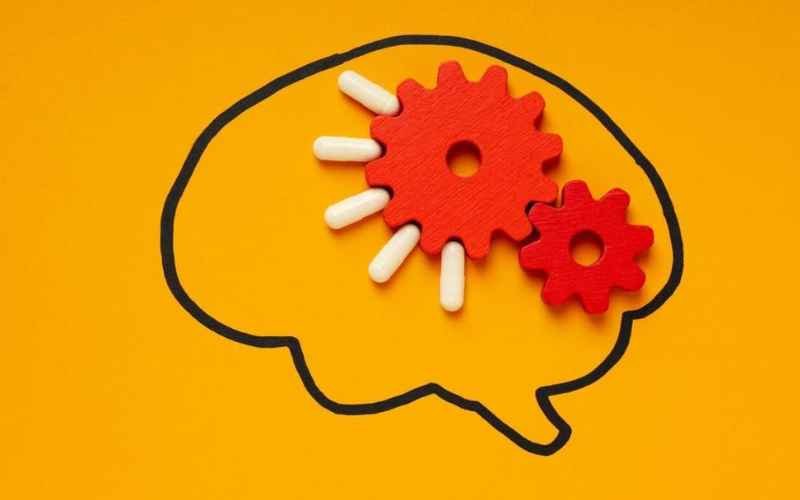ADHD, or Attention Deficit Hyperactivity Disorder, is a neurodevelopmental disorder that affects millions of people worldwide. Despite its prevalence, there are still misconceptions surrounding ADHD. In this blog post, we’ll delve into what ADHD is, its symptoms, potential causes, and how it impacts daily life.

What is ADHD?
ADHD is a chronic condition that affects an individual’s ability to focus, control impulses, and regulate energy levels. It typically begins in childhood and can persist into adulthood. There are three subtypes of ADHD: predominantly inattentive presentation, predominantly hyperactive-impulsive presentation, and combined presentation, which includes symptoms of both inattention and hyperactivity-impulsivity.
Symptoms of ADHD:
- Inattention: Individuals with ADHD may have difficulty sustaining attention on tasks or activities, frequently make careless mistakes, have trouble organizing tasks and activities, and often lose things necessary for tasks.
- Hyperactivity: This symptom involves excessive fidgeting, restlessness, difficulty staying seated in appropriate situations, and an inability to engage in leisure activities quietly.
- Impulsivity: Impulsivity manifests as difficulty waiting for one’s turn, blurting out answers before questions have been completed, and interrupting or intruding on others’ conversations or activities.
Causes of ADHD:
The exact cause of ADHD is not fully understood, but it is believed to involve a combination of genetic, environmental, and neurological factors. Research suggests that genetics play a significant role, as ADHD often runs in families. Additionally, environmental factors such as prenatal exposure to toxins, premature birth, low birth weight, and maternal smoking during pregnancy may increase the risk of developing ADHD.
Impact on Daily Life:
ADHD can significantly impact various aspects of daily life, including academic performance, work productivity, relationships, and self-esteem. Children with ADHD may struggle in school due to difficulties with attention and impulse control, while adults may face challenges in maintaining employment and managing household responsibilities. ADHD can also strain interpersonal relationships, as symptoms like forgetfulness and impulsivity can lead to misunderstandings and conflicts.
Treatment Options:
While there is no cure for ADHD, various treatment options can help manage symptoms and improve functioning. These include:
- Medication: Stimulant medications such as methylphenidate and amphetamine salts are commonly prescribed to alleviate symptoms of ADHD.
- Therapy: Behavioral therapy, cognitive-behavioral therapy (CBT), and parent training programs can teach coping strategies, organizational skills, and effective communication techniques.
- Lifestyle Modifications: Regular exercise, a healthy diet, adequate sleep, and stress management techniques can all contribute to symptom management.
Conclusion:
ADHD is a complex neurodevelopmental disorder that can have a significant impact on individuals’ lives. By understanding the symptoms, causes, and treatment options for ADHD, we can better support those affected by this condition and promote awareness and acceptance in our communities. If you or someone you know is struggling with ADHD symptoms, don’t hesitate to seek help from a qualified healthcare professional.
FAQs
1. What is ADHD? ADHD stands for Attention Deficit Hyperactivity Disorder, a neurodevelopmental disorder characterized by difficulties in attention, hyperactivity, and impulsivity.
2. What are the main symptoms of ADHD? The main symptoms of ADHD include inattention, hyperactivity, and impulsivity. These can manifest differently depending on the individual and may include difficulty focusing, excessive fidgeting, and impulsively interrupting others.
3. When does ADHD typically appear? ADHD typically appears in childhood, often becoming noticeable in early school years. However, it can persist into adolescence and adulthood.
4. Is ADHD a lifelong condition? ADHD is a chronic condition that can persist into adulthood. However, symptoms may change over time and can be managed with appropriate treatment and support.
5. What causes ADHD? The exact cause of ADHD is not fully understood, but it is believed to involve a combination of genetic, environmental, and neurological factors.
6. Is ADHD hereditary? Yes, ADHD tends to run in families, suggesting a genetic component to the disorder.
7. Can ADHD be diagnosed in adults? Yes, ADHD can be diagnosed in adults if they exhibit symptoms that have persisted since childhood and significantly impact daily functioning.
8. How is ADHD diagnosed? ADHD is typically diagnosed through a comprehensive evaluation by a qualified healthcare professional, which may include interviews, observations, and rating scales.
9. Are there different types of ADHD? Yes, there are three subtypes of ADHD: predominantly inattentive presentation, predominantly hyperactive-impulsive presentation, and combined presentation, which includes symptoms of both inattention and hyperactivity-impulsivity.
10. Can ADHD be cured? There is no cure for ADHD, but symptoms can be managed effectively with proper treatment and support.
11. What are the treatment options for ADHD? Treatment options for ADHD include medication, therapy (such as behavioral therapy or cognitive-behavioral therapy), and lifestyle modifications.
12. What medications are commonly used to treat ADHD? Stimulant medications such as methylphenidate and amphetamine salts are commonly prescribed to alleviate symptoms of ADHD.
13. Can therapy help with ADHD? Yes, therapy can be an effective treatment for ADHD, helping individuals develop coping strategies, organizational skills, and improved self-esteem.
14. How can I support someone with ADHD? Supporting someone with ADHD involves understanding their condition, offering patience and encouragement, and providing practical assistance when needed.
15. Can ADHD affect academic performance? Yes, ADHD can affect academic performance due to difficulties with attention, organization, and impulse control.
16. Can ADHD affect relationships? Yes, ADHD can affect relationships due to symptoms such as forgetfulness, impulsivity, and difficulty maintaining attention during conversations.
17. Can adults outgrow ADHD? While some individuals may experience a reduction in symptoms as they age, ADHD is generally considered a lifelong condition.
18. Can ADHD be managed without medication? Yes, ADHD can be managed without medication through therapy, lifestyle modifications, and support systems.
19. Can ADHD be misdiagnosed? Yes, ADHD can be misdiagnosed, as its symptoms overlap with other conditions such as anxiety, depression, and learning disabilities.
20. Where can I find more information about ADHD? You can find more information about ADHD from reputable sources such as medical websites, books written by experts in the field, and support organizations dedicated to ADHD awareness and advocacy.


